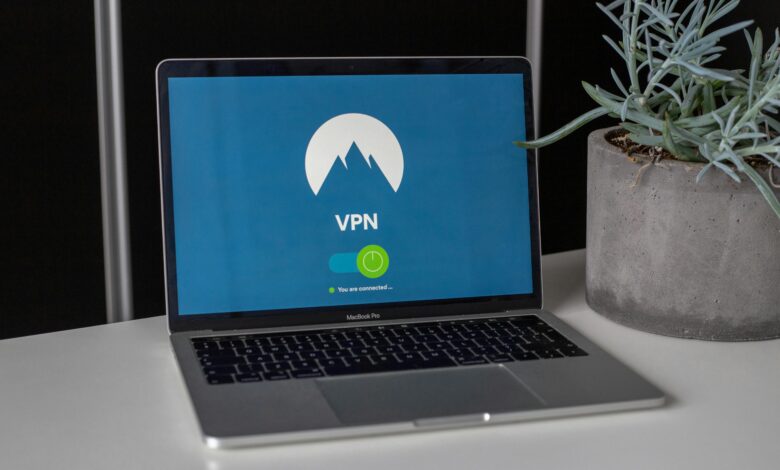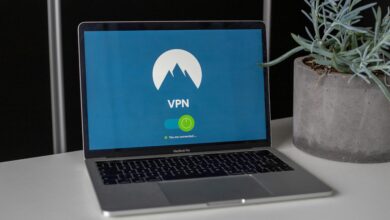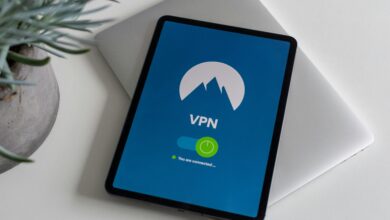How to Choose the Right VPN for Your Needs

In today’s digital age, online privacy and security are more important than ever. Whether you’re browsing the internet, streaming content, or working remotely, a Virtual Private Network (VPN) can help protect your data, mask your IP address, and bypass geo-restrictions. However, with hundreds of VPN providers on the market, choosing the right one can be overwhelming. To ensure you select a VPN that aligns with your needs, consider the following factors:
1. Understand Your Primary Use Case
Before selecting a VPN, identify why you need it. Different use cases may prioritize different features:
- Privacy and Security: If your main concern is protecting sensitive data or avoiding surveillance, look for a VPN with strong encryption and a no-logs policy.
- Streaming: For accessing geo-restricted content on platforms like Netflix, Hulu, or BBC iPlayer, choose a VPN with fast speeds and dedicated servers for streaming.
- Torrenting: If you plan to download files via P2P networks, ensure the VPN allows torrenting and has robust security features.
- Travel: Frequent travelers may need a VPN that works in countries with strict internet censorship (e.g., China or Russia).
- Remote Work: Businesses or remote workers should prioritize a VPN with secure protocols and compatibility across multiple devices.
2. Evaluate Security Features
The core purpose of a VPN is to enhance your online security. Look for these essential features:
- Encryption Standards: AES-256 encryption is the industry gold standard and ensures your data is virtually unbreakable.
- No-Logs Policy: A reputable VPN should not track or store your browsing activity. Verify the provider’s logging policy and check for independent audits.
- Kill Switch: This feature automatically disconnects your device from the internet if the VPN connection drops, preventing accidental exposure of your real IP address.
- DNS Leak Protection: Ensures that your DNS queries remain private and don’t leak outside the encrypted tunnel.
- Multi-Hop Servers: Some advanced VPNs offer multi-hop connections, routing your traffic through multiple servers for added anonymity.
3. Check Server Locations and Coverage
The number and distribution of servers play a significant role in performance and functionality:
- Global Coverage: More server locations mean better access to geo-restricted content and faster connections to nearby servers.
- Proximity to You: Connecting to a server closer to your physical location typically results in faster speeds.
- Specialized Servers: Some VPNs offer optimized servers for streaming, gaming, or P2P activities.
4. Assess Speed and Performance
A slow VPN can disrupt your browsing, streaming, or downloading experience. Consider the following:
- Speed Tests: Research reviews or conduct your own tests to evaluate the provider’s speed consistency.
- Bandwidth Limits: Avoid VPNs with data caps unless they’re free trials or temporary solutions.
- Simultaneous Connections: Ensure the VPN supports multiple devices simultaneously, especially if you plan to use it across smartphones, tablets, and computers.
5. Compatibility Across Devices
Make sure the VPN is compatible with all the devices and operating systems you use:
- Supported Platforms: Look for apps available on Windows, macOS, iOS, Android, and Linux.
- Router Support: Some VPNs allow installation on routers, extending protection to all connected devices.
- Ease of Use: User-friendly interfaces and intuitive apps are crucial, especially for beginners.
6. Pricing and Subscription Plans
While free VPNs may seem appealing, they often come with limitations such as slower speeds, fewer servers, and intrusive ads. Paid VPNs generally offer better performance and privacy. When evaluating pricing:
- Free Trials and Money-Back Guarantees: Many reputable providers offer free trials or 30-day money-back guarantees, allowing you to test the service risk-free.
- Long-Term Discounts: Subscribing for longer periods (e.g., annually) often results in significant savings compared to monthly plans.
- Hidden Costs: Be wary of additional fees for premium features or extra bandwidth.
7. Customer Support
Reliable customer support is essential, especially if you encounter technical issues. Look for:
- 24/7 Availability: Live chat and email support should be accessible around the clock.
- Knowledge Base: A comprehensive FAQ section or tutorial library can help resolve common problems independently.
- Responsiveness: Test the provider’s support team by reaching out with questions before committing.
8. Reputation and Trustworthiness
Not all VPN providers are created equal. Research the company’s reputation and history:
- Independent Audits: Providers that undergo third-party audits demonstrate transparency about their practices.
- Jurisdiction: Avoid VPNs based in countries with invasive surveillance laws (e.g., Five Eyes, Nine Eyes alliances).
- User Reviews: Read reviews from trusted sources and forums like Reddit to gauge real-world experiences.
9. Additional Features
Some VPNs offer extra tools that enhance functionality:
- Split Tunneling: Allows you to route only specific apps or websites through the VPN while others use your regular connection.
- Ad Blockers: Built-in ad blockers can improve browsing speed and reduce exposure to malicious ads.
- Obfuscated Servers: These hide the fact that you’re using a VPN, making them ideal for bypassing censorship in restrictive countries.
- Double VPN: Routes your traffic through two servers instead of one for enhanced privacy.
10. Compare Popular VPN Providers
Here’s a quick comparison of some top-rated VPNs and their strengths:
| Provider | Best For | Key Features | Price Range (Monthly) |
|---|---|---|---|
| ExpressVPN | Streaming, Speed | Fast servers, excellent unblocking capabilities | $6.67–$12.95 |
| NordVPN | Privacy, Security | Double VPN, strict no-logs policy | $3.29–$11.95 |
| Surfshark | Budget-Friendly, Unlimited Devices | Affordable, unlimited simultaneous connections | $2.49–$12.95 |
| CyberGhost | Beginners, Streaming | User-friendly interface, optimized streaming servers | $2.19–$12.99 |
| ProtonVPN | Free Option, Privacy | Free tier available, Swiss-based | Free–$9.99 |
11. Avoid Red Flags
Be cautious of VPNs that exhibit these warning signs:
- Free Services with Ads: Many free VPNs monetize user data or bombard users with intrusive advertisements.
- Lack of Transparency: Providers that don’t disclose their logging policies or headquarters location are suspicious.
- Unrealistic Claims: No VPN can guarantee complete anonymity or 100% unblocking success.


